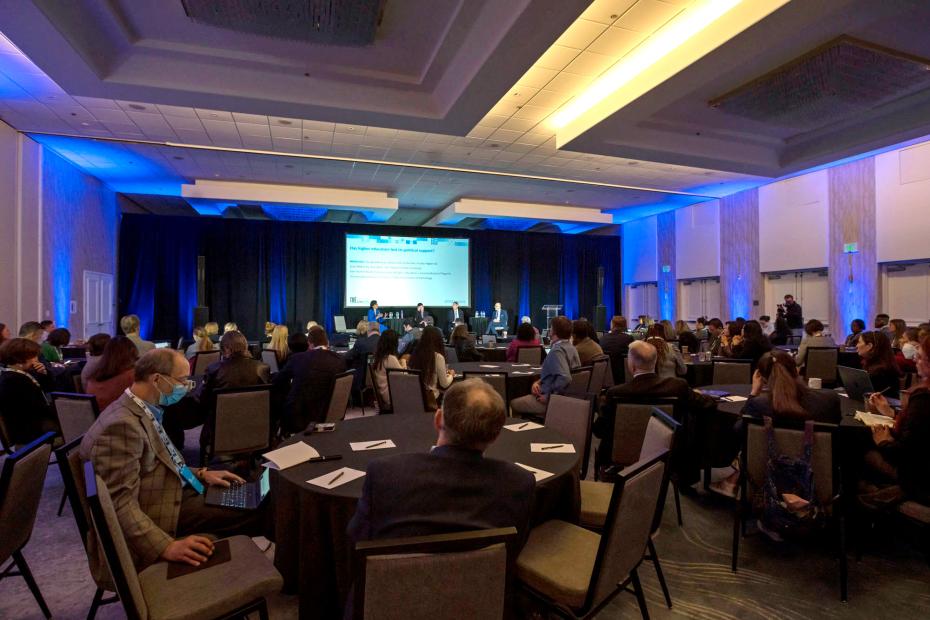
Three tips for using capstone projects to improve employability

Capstone projects are an impactful and practical way to ensure students emerge from university workplace-ready. When undertaking a capstone project, students apply learning from their academic studies to live business briefs provided by industry partners.
With concerns from employers on declining career readiness and a widening gap between education and employment skills, how can universities ensure that initiatives like these prepare students for the workplace? Here are three tips on bridging the gap between academia and industry, or sponsors, via capstone projects:
Prioritise project fit
This is the most important point to establish from the beginning. Does the sponsor’s project brief align with the curriculum? Spotting synergies between business needs and course content is the foundation for sourcing and establishing potential collaborations.
In addition to relevancy, does the project offer opportunities for students to develop industry skills and knowledge? Although undertaking research is typically part of the process, students should also have opportunities to make connections with networks outside academia. Crucially, they can then present business recommendations to sponsors and stakeholders as a result of their research. This is what differentiates capstone projects from traditional research projects.
Having regular touchpoints and opportunities to meet and present in sponsors’ offices is great workplace practice for students, in addition to helping them feel more immersed in the project.
Finally, is the project exciting for students? Forward-looking topics (such as sustainability, AI and technology, and the social and technological changes in the post-pandemic workplace) are perfect for students because they will be a part of their future – and where they can make the most difference.
It may also be tempting to prioritise projects from large multinationals, especially as students are usually keen to add brand names to their CV. However, prioritising project fit over employer brand allows students to discover the hidden SME sector, which makes up three-fifths of employment and half of the UK’s private sector turnover. Moreover, because SMEs have fewer resources than multinationals, they benefit even more from gaining access to university talent and often have less bureaucracy for students to navigate.
Develop student success
While sponsors offer capstone projects with a business need to solve challenges or develop new initiatives, it makes a huge difference when they have a coaching or mentoring mindset in their approach with students. Set the expectation that in working with students (as opposed to working professionals), sponsors play a valuable role in supervising and training students to succeed. Remind them that for some students, this may even be their first experience of a professional role in industry.
Capstone projects are part of the curriculum and students will need to meet academic requirements and deadlines, so sponsors should be understanding and flexible. Students are typically assigned an academic coach too, who will guide them to apply their learning and deliver a final presentation or report to their sponsor. A business presentation – which typically emphasises concise communication, solutions and outcomes – is very different to an academic presentation, which needs to reflect depth of understanding, research methods and critical analysis. Discuss incorporating this guidance with the sponsor and academic coach to make sure students balance or target their approach with different audiences, developing these often-overlooked soft skills for the workplace.
Working with careers consultants to include mechanisms for students to track and reflect on their experience is equally important to help them articulate their capstone experience in future job applications and interviews. This can be via induction sessions or resources on working with sponsors or post-project with short statements and feedback forms.
Look beyond the project
Capstone projects allow students and sponsors to engage closely over a period of time, typically with a dedicated supervisor, but also with stakeholders across the organisation with an interest in the brief. Encourage students and sponsors to actively build a relationship and stay connected after the project. Sponsors might have recruitment opportunities or be able to support students into the industry by introducing contacts and offering careers advice and mentoring. It can be a great starting point for students in building their professional networks.
Celebrating success at the end of projects, such as holding a thank you event or a capstone projects showcase, can be a wonderful way to conclude the experience for all parties, facilitate networking between students and sponsors and communicate appreciation for their commitments.
Let’s invest in career readiness
Capstone projects bridge the gap between academia and industry, helping us work together to cultivate the key skills and talent needed. Interdisciplinary projects, which combine students from different subjects – or even schools – can foster innovation, diversity of thought and develop students’ cultural sensitivity (especially attractive to global employers). By developing high-quality collaborations such as capstones, working with industry to develop student success and guiding students to build relationships, we can play a powerful role in ensuring students’ career readiness.
Ardy Cheung is employer relations manager in the department of management at the London School of Economics and Political Science.
If you would like advice and insight from academics and university staff delivered direct to your inbox each week, sign up for the Campus newsletter.


